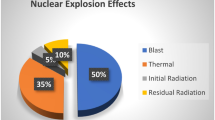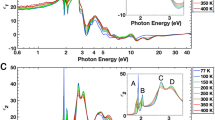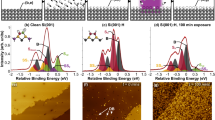Abstract
ALTHOUGH various thermonuclear devices such as Scylla 1 employ electrodeless discharges to generate strong shock waves in a gas such as deuterium, with the exception of some exploratory experiments of Janes and Patrick2, there are no reports of attempts to study the basic phenomena in such devices. An investigation of electromagnetically driven shock waves generated by this method is therefore being undertaken at the Atomic Weapons Research Establishment, Foulness.
This is a preview of subscription content, access via your institution
Access options
Subscribe to this journal
Receive 51 print issues and online access
$199.00 per year
only $3.90 per issue
Buy this article
- Purchase on SpringerLink
- Instant access to full article PDF
Prices may be subject to local taxes which are calculated during checkout
Similar content being viewed by others
References
Elmore, W. C., Little, E. M., and Quinn, E. W., Phys. Rev. Letters, 1, 32 (1958).
Janes, G. S., and Patrick, R. M., A.V.C.O. Research Report No. 27 (1958).
Spitzer, L., “Physics of Fully Ionised Gases” (Intersci. Pub., 1956).
Hale, D. H., Phys. Rev., 55, 815 (1939).
Rose, D. J., Phys. Rev., 104, 273 (1956).
Author information
Authors and Affiliations
Rights and permissions
About this article
Cite this article
WRIGHT, J., EELES, W. & HERBERT, J. Some Experiments with an Electrodeless Discharge. Nature 183, 1665–1666 (1959). https://doi.org/10.1038/1831665a0
Issue date:
DOI: https://doi.org/10.1038/1831665a0



